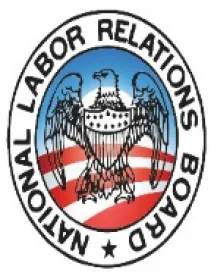A second federal appellate court holds that President Obama's NLRB recess appointments were invalid and potentially calls into question every Board decision since March 2010.
On May 16, in National Labor Relations Board v. New Vista Nursing and Rehabilitation,[1] the U.S. Court of Appeals for the Third Circuit became the second federal appellate court to rule that President Barack Obama's recess appointments to the National Labor Relations Board (NLRB or Board) were unconstitutional.[2] In a split decision, the Third Circuit concluded that President Obama's March 27, 2010 recess appointment of Craig Becker was constitutionally invalid.
The New Vista ruling comes on the heels of the D.C. Circuit's January 25 decision in Noel Canning v. National Labor Relations Board,[3] in which the court ruled that President Obama's three January 4, 2012 recess appointments to the NLRB were unconstitutional. Both decisions limit the president's recess appointment power to breaks between sessions of Congress, rather than breaks during sessions. While the Third Circuit's decision closely mirrors the D.C. Circuit's decision in Noel Canning, it may have much farther-reaching effects, potentially calling into question every Board decision since March 2010.
Background
On March 27, 2010, after the full Senate failed to consider the controversial nomination of Craig Becker to the Board, President Obama recess appointed him to the Board during a two-week break in Senate proceedings during the second session of the 111th Congress. The president made the nomination under the auspices of his recess appointment power contained in Article II, Section 2, of the U.S. Constitution, referred to as the Recess Appointments Clause. Becker served on the Board until December 2011, the end of the Senate's next session.
The Third Circuit's decision in New Vista involved the review of a Board order against employer New Vista Nursing and Rehabilitation. A three-member panel that included Member Becker issued the order on August 26, 2011. New Vista appealed the Board's decision to the Third Circuit, arguing—among other things—that the panel only had two validly appointed members because Member Becker was invalidly appointed under the Recess Appointments Clause. In effect, New Vista argued that the panel lacked jurisdiction to issue decisions and that the adverse order against it was invalid. The Third Circuit agreed.
Third Circuit Opinion
In a lengthy opinion, the Third Circuit rejected the Board's claims that the Senate was in recess on March 27, 2010 and instead adopted a narrow version of "recess" for purposes of interpreting the Recess Appointments Clause. The clause provides as follows:
The President shall have Power to fill up all Vacancies that may happen during the Recess of the Senate, by granting Commissions which shall expire at the end of their next Session.
The Third Circuit agreed with the D.C. Circuit's Noel Canning holding that the term "recess" refers only to "intersession breaks" between formal sessions of the Senate and not mere breaks within a session (i.e., "intrasession breaks") or other breaks during which the Senate is unable to provide advice and consent. The court reasoned that the Recess Appointments Clause's specification that recess-appointed officers' terms "shall expire at the End of [the Senate's] next Session" implies that their appointments are intended to be made during a period between sessions.[4] This ruling effectively limits the president's recess appointment power to just two breaks—and, in some cases, one or no break at all—during each two-year, two-session "Congress."
The court narrowly interpreted the Recess Appointments Clause based on historical practice dating back to ratification and the importance of balancing the president's unilateral appointment power with the Senate's advice and consent function. Beyond that, the court evaluated the purpose of the Recess Appointments Clause in relation to the Appointments Clause, writing that the former is "a secondary, or exceptional, method of appointing officers, while the Appointments Clause provides the primary, or general, method of appointment."[5]
Implications
The Third Circuit's decision, particularly when paired with Noel Canning, is far-reaching and critically important, particularly for employers involved in Board proceedings since March 2010. The invalidation of Member Becker's appointment also affects a number of Board actions during that time, including the "quickie" election rules (providing for a much faster election process) and the decision in D.R. Horton (invalidating class and collective action waivers in employment arbitration agreements). The Third Circuit and the D.C. Circuit have drawn a roadmap for challenging the validity of three years' worth of Board decisions and are now the likely forums of choice for such challenges.
Last month, the NLRB filed a petition for certiorari, asking the U.S. Supreme Court to review the D.C. Circuit's Noel Canning decision. The administration argues that Noel Canning would "dramatically curtail the scope of the President's authority under the Recess Appointments Clause" and acknowledges that the effects of the decision can be expected to impact a wide array of federal agencies.[6] If, as expected, the Supreme Court accepts Noel Canning, it may also accept New Vistaand consolidate the cases. It is unlikely, however, that the Court would issue a decision before the end of the year, meaning that at least until then, nearly everything the NLRB has done for the last three years—and any decision it might make in the period up until the issue is decided by the Supreme Court (or a valid Board is confirmed by the Senate)—is of highly questionable validity.
[1]. NLRB v. New Vista, No. 11-3440 (3d Cir. May 16, 2013), availablehere.
[2]. For more information, view our January 28, 2013 LawFlash, "D.C. Circuit Rules NLRB Recess Appointments Unconstitutional," availablehere, and our January 22, 2013 LawFlash, "The Second Obama Term: NLRB Outlook," available here.
[3]. Noel Canning v. NLRB, No. 12-1115 (D.C. Cir. Jan. 25, 2013), available here.
[4]. Id. at 75.
[5]. Id. at 58.
[6]. Petition for Writ of Certiorari, Noel Canning v. NLRB, No. 12-1115 (D.C. Cir. Jan. 25, 2013), available here.


 />i
/>i

